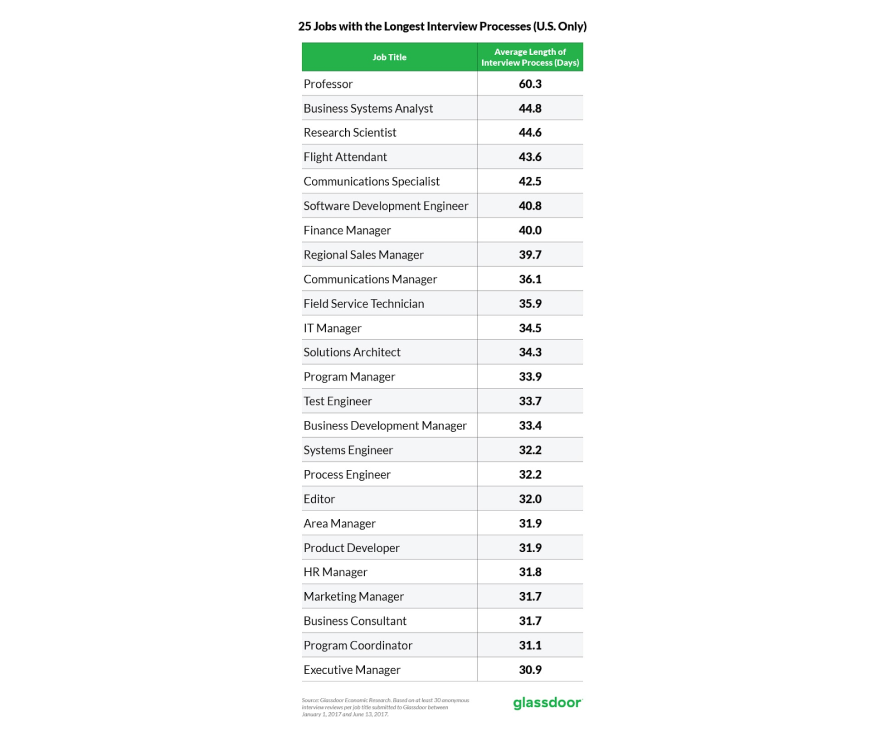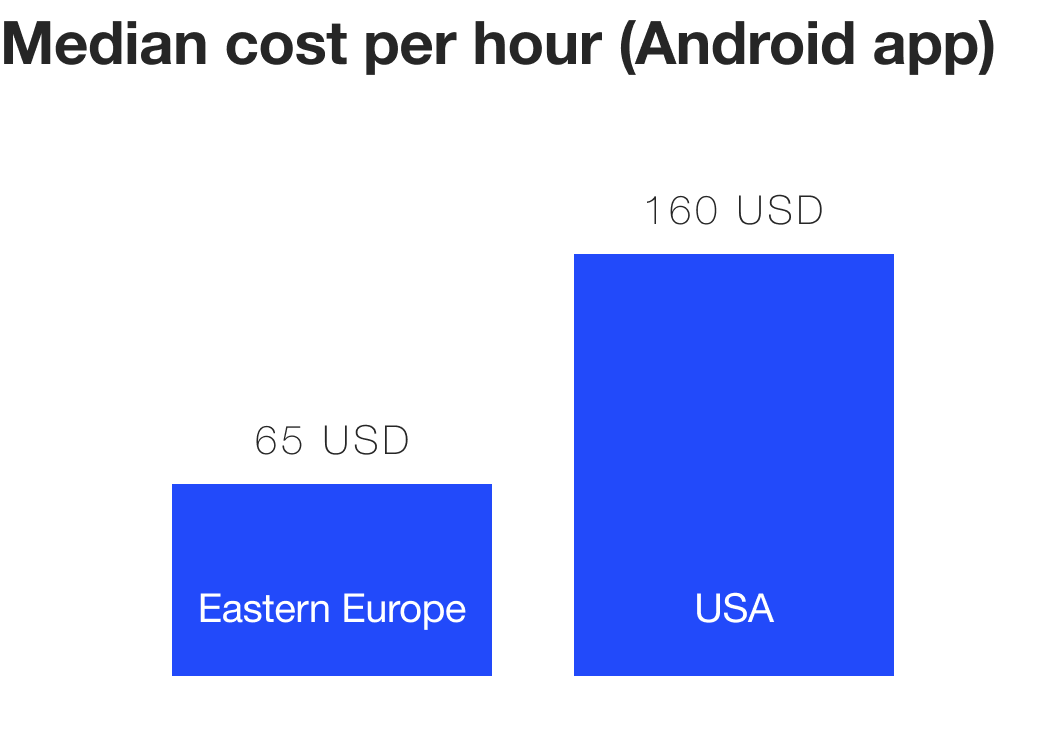Finding the perfect outsourced app development company is not a stuff of fairytales. It’s indeed possible. Make sure you keep track of these 8 factors.
What to choose: in-house or outsourcing app development
Choosing between in-house and outsourcing app development is no easy feat.
You want your future mobile app to be the best possible, so it’s understandable you want it to be in the hands of the best experts.
An in-house development team seems like the safest option, but the affordable and time-saving benefits of outsourcing app development are very tempting.
Both approaches have their pros and cons. But, as in everything in life, there isn’t a cookie-cutter solution.
To help you make an informed decision, we’ll do a breakdown of both approaches.
Also, we’ll talk about the hybrid approach, which combines the characteristics of in-house and outsourced app development.
Let’s begin!
Table of Contents
In house app development
We’ll start with the most common approach to hiring IT experts.
You’re working with these people every day, probably in the same office. You share the same culture and you’re all working to the beat of the same drum.
For many companies, this is the ideal approach because it makes working for the same goal more real and palpable.
Companies like Paypal, Amazon and Salesforce have made it to the top thanks to their tight-knit in-house teams.
But the reality is that hiring people for your company has a few drawbacks.
Pro and cons of in-house app development
Pros
- Culture fit
- Smooth Communication
Cons
- Expensive
- Long hiring and onboarding
We’ll compare both the benefits and the risks in detail below.
Pros of in-house app development
- Culture fit
Culture is an important part of every company. If you don’t share the same or similar values, behavior, and interests, teamwork and communication are hard.
It’s also important for the company to align itself with the values and behaviors of its (future) team.
According to Stack Overflow, good pay isn’t the only reason for work happiness in developers. They’re after more intangible things – like work balance, flexibility, learning resources and growth opportunities.
Source: Stack Overflow
When these values and expectations are in harmony, the whole development process runs smoothly.
This cultural fit is prevalent within in-house teams. In outsourced companies or with freelancers, especially when there’s a mix of people of different backgrounds, lack of cultural fit can sometimes be a roadblock.
- Smooth Communication
Working in the same office has a lot of benefits, especially regarding communication.
You can communicate with colleagues right off the bat, discuss changes and solve problems immediately.
Communication is especially important when you’re getting across the concept of your app to developers.
Since they already share your values and are working with you for a longer time, you don’t have to explain your vision or work processes like you would have to with freelancers.
Cons of in-house app development
- It can get pricey
In the US, the average salary of an IT developer amounts to $71,508.
Additional costs, like healthcare, benefits, and perks are not included, so the real cost is much higher.
Here’s a short list of the most common additional costs when hiring people for your in house team:
- Office space
- Work equipment
- Transport fees
- Meals
- Team-building costs
This is the most nerve-wracking part of hiring developers in-house. Sadly, one IT expert is never enough, you have to hire a range of people fit for your projects.
A team could therefore cost you more than 1 million dollars.
- Long hiring and onboarding
Companies still waste lots of time and money on hiring and onboarding developers.
Let’s look at the numbers.
A 2016 Glassdoor survey showed the average interview process took 23.7 days. If you want to hire a software development engineer, the interviewing process will take 40.8 days! And that’s just on average.

Source: Glasdoor
Let’s say you find a fit for your project and get them through the onboarding process. But after a few months, you realize they’re not fit for the job. Or even worse – they quit on a short notice, which is more common than you thought.
So you wasted at least 3 months that could have been spent on the project. Not to mention that the employee(s) in charge of hiring and boarding could have also done something else in that period.
That’s why with an app agency you get the whole package – top-notch IT experts and project managers – without wasting time on the prep work for new team members.
When to use in-house development
- When you have the necessary experts for your app. You already have a full team of trusted experts necessary for building a perfect product. You don’t need to hire or onboard new employees, so you can spare money and time.
However, even if you don’t have all team members, finding them is much easier when you have time and resources for hiring.
Outsourcing app development
According to Statista, in 2017 64% of businesses outsourced their app development.
The reason for this growing number is clear as day.
It’s much cheaper than in-house app development. Especially if you’re outsourcing app development to distant countries.

Need high-end mobile app development from true experts?
We’re a full-service partner to the world’s most ambitious companies — Let’s talk.
Globalization and the internet have shortened geographical distance. In a manner of seconds, one can communicate with people all over the world.
For example, a company based in North America or Western Europe will rather outsource their app development to Eastern Europe than hire a developer from their own country.
Source: Glassdoor
The prevalence of remote working is also something to take into account.
Among industries with the highest number of remote workers is, you guessed it, technology (10%).
Thanks to the COVID-19 pandemic, this new work method is here to stay.
Also, remote working includes using communication tools such as Slack, project management tools like Jira, and video platforms like Google Meet and Zoom – all tools used when dealing with outsourced companies.
So, it’s pretty obvious why outsourcing app development will continue to grow.
Pro i cons of outsourcing app development
Pros
- Access to specialized experts
- More affordable than in-house
- Flexible
Cons
- Can be unsafe
- Lack of face-to-face interaction
However, outsourcing approach also has its share of benefits and drawbacks, so we’ll make a rundown of them below.
Pros of outsourcing app development
- Outsourcing gives you access to a big talent pool
When you’re working with your in-house team, you have a limited number of talents.
For example, you have an iOS developer, but you need to develop an iOS app with complex features and a smooth UI.
A UX designer would be the perfect fit for this, but remember the amount of time and money you have to spend on finding just one person.
The process becomes more complicated when you have to hire a hard-to-find expert – like a SCRUM master, database architect or information security analyst.
Most in demand tech jobs in 2022
- Database administrator and architect
- Information security analyst
- Software developer
- Network and computer systems administrator
- Computer programmer
- Web developer
- Computer and information systems manager
- Systems analyst
- Help desk and desktop support professional
- Network/could architect
It’s easier to outsource these people than to try to hire them full-time. Outsourcing gives you access to an enormous global talent pool. It’s easier to make a choice between 10 experts than only two or none!
if you manage to find a sought-after expert at a much cheaper rate than a medium-skilled developer, you’ve struck gold!
- Outsourcing app development is more affordable
This is the main difference between hiring developers in-house and outsourcing a development team.
People, or companies with less experience, will make their decision based on the cost.
Also, you only pay for the services these experts provide. There are no additional or overhead costs like healthcare, bonuses, perks, working equipment, and communication tools.
The cost is even lower when you outsource to countries in Asia. For example, the median cost per hour for an Android app in Eastern Europe is 65 USD, while in the USA it’s 160 USD.

Source: DECODE
However, the affordability of outsourcing app development can be tricky. Sometimes a lower price equals low quality. That’s why outsourcing has a bad reputation. That’s why you should never base your decision just on the cost.
- Outsourcing is flexible
App development is a volatile, non-linear process, even with a well-thought-out strategy and planning.
Lots of factors influence it – from market disruptions, bad communication, choosing an ill-fitted architecture pattern, compatibility problems, or problems in the testing stage.
Outsourced companies combat these issues with flexible work processes and tools.
One of the best project management methods is the project management triangle.
It’s based on the interplay between three variables that determine the quality of the project:
- Scope
- Time
- Budget
A change in one variable inevitably brings change to another (that’s why they’re connected). For example, if the budget is suddenly cut, there’ll have to be some changes in the scope – maybe less features or a less complex app in general.
Source: DECODE
Also, changes in budget will bring about changes in the time department – whether it’s extending deadlines or adding more work hours to team members.
Outsourcing is not only flexible when it comes to project management.
It’s easier to stop working with an offshore company than with a full time employee. On the other hand, it’s also easier to add new members to the team.
Cons of outsourcing app development
- Outsourcing can be unsafe
People are careful around outsourcing because they think it’s low-quality and therefore unsafe.
This concern grows even more when they have to develop apps they think are original, or apps that collect private user data.
However, these road bumps can be mitigated by doing thorough research of the company. Check out their profile on Clutch, browse through their Google reviews and if you want to be extra sure contact those clients and ask about their experience.
This document will legally bind the outsourced company to keep confidential information secret.
If you want to protect your app idea and data require a NDA (Non-Disclosure Agreement).
The confidential information doesn’t have to be only an app idea. It can include app documentation, business practices, financial information etc.
- Lack of face-to-face interaction
When you do outsourcing, face-to-face communication is impossible.
The closest you can get to it is a Zoom call.
Most of the communication is in writing, so sometimes it can be difficult to discern context – especially if the person on the other side of the screen is from a different country or cultural background.
But in order to smooth out possible communication breakdowns between you and your outsourced dev team, keep it consistent and regular.
Hold weekly or daily online meetings and constantly check on the work in process. But try not to be too pushy about it.
When to outsource?
- When you can focus on your core business
- When you need rare talents and skill sets
- When you don’t have time
- When you did the groundwork
- When you’re on a tight budget
- When you want to lessen your team’s workload
- You need to focus on your core business
As seen in the infographic above, one of the best benefits of outsourcing app development is that it gives you the space and time to focus on your core business.
As the word implies, your core business is the heart of your company.
When lots of energy is devoted to various projects, you lose traction and a sense of direction.
Imagine if you had to travel to a place you’ve never been without a map or road signs!
The employees also feel the consequences. First, productivity tends to drop. Along with it also drops motivation. Deadlines are broken, and the atmosphere is strained.
That doesn’t sound good, right?
- You need rare talents and skillsets
But if you do some strategizing and outsource your low-priority projects to an outsourced dev team, you won’t have to worry about the aforementioned problems.
Ok, so you have a well played team of IT experts – Android/iOS developers, QA analysts, but a certain something is missing for it to be complete.
Maybe it’s a data analyst or a project manager?
Maybe your app needs some help from a UX designer specialized for fintech apps?
The more specific and rare the skill set you’re looking for, the more difficult it can be to find it near you, especially if you’re living in a smaller city.
When you find yourself in that kind of situation, it’s time to go headhunting for talents!
Outsourcing will help you spare time (more on that below) you’d otherwise spend on the cumbersome process of searching, interviewing and onboarding a new employee
- You don’t have time
As the old American saying goes – time is money. The more time you spend on an app, more energy and time is wasted.
Time is especially important when you’re juggling several projects simultaneously.
If you outsource your project to a dedicated team, you’ll be left with more time for your high-priority tasks and projects.
- When you did the groundwork
You can’t expect the outsourced team to just start writing that code. Don’t forget to prepare the essentials that will make the project easier for them, and in the long run for you.
You have to put everything regarding your app on paper.
One of the best ways to do this is to prepare a SRS (software requirements documentation) document. It’s a document that includes all information about your app, including:
- General information about the app (purpose, targeted audience, how does it function)
- Essential and non-essential features and requirements
Source: Lucidchart
With most of the tedious prep work out of your way, there’ll also be more time for the most important bit of your project – building the code.
- You’re on a tight budget
Sometimes you don’t have an allocated budget big enough for making new additions to your in-house team.
But you have to build your app as fast as possible and with less costs too.
The perfect solution is to transfer the development process to someone outside the company.
As we mentioned before, for a more affordable price you can get a team of dedicated developers who’ll build, test and maintain your app.
- You want to lessen your team’s workload
Your team is working on a very important project that is already spending most of your resources. Instead of loading your in-house team with low priority responsibilities, delegate these tasks to an outsourced team.
If your team is building a new app, an outsourced team can handle the maintenance of another product or the adding of new features.
In case you’re starting to work on a project for an important client that will bring lots of revenue, or one of your projects requires the effort of your whole in-house team, outsourcing is the best option.
However, make sure that the development team understands your business needs and goals and have enough expertise for your project.
This way, your in-house team can focus on strategic and mission critical projects.
What is the cost?
Although it’s generally considered that outsourcing is much cheaper than hiring in-house team members, the cost depends on a number of factors.
First and foremost, the price of someone’s work depends on their location.
In the table below, you can see how the rates change according to location – developers in the West are generally more expensive than those in Asia or Eastern Europe.
Source: Addevice
Other factors come into the equation, including:
- Mobile app type and level of complexity
- Current stage of your app development process
- Your budget
- Infrastructure
- Time constraints
However, when you outsource your app development, most companies will charge a fixed price or do a time and material model. This is based on years of on-hand experience in developing apps.
Even if there are extra costs or other changes in the project, the client is informed appropriately, and meeting each other in the middle is more than welcome.
Have your cake and eat it too: the hybrid approach
If only there could be a way to get the best of in-house and outsourcing!
There is!
With the hybrid approach, you can be very flexible.
Let’s say you have an experienced team, and all you need is a UX designer specializing for mobile apps. You can ask for one from your outsourcing partner.
So it’s much easier to add new, temporary team members without committing for a long period of time.
Here at DECODE, we use this approach – we seamlessly integrate our IT experts into projects of our partners, many of whom are Forbes 500 companies.
Let’s take a look at the benefits of this approach.
Benefits of the hybrid approach
- More affordable than in-house development
- Less risky than outsourcing
- It’s a potluck of innovative ideas
It’s more affordable than full in-house development. As we mentioned before, one of the downsides to this approach is the high cost.
But when you combine outsourced manpower with in-house, you can have the best of both worlds – you pay less and gain more time for your priority projects.
It’s less risky than outsourcing. The hybrid approach allows you to keep your established working processes. With a new addition to the team, whether it be one or more developers, you can manage these people like your own team.
Therefore, you’ll have more control over their involvement in the project and make sure there are no security leaks.
Also, there’s a less financial risk – you add people to your team as the project requires and you can let them go after it’s done.
No need for long-term commitment and high costs of employment.
A potluck of innovative ideas. The diversity of your team members and their skill sets opens up space for original ideas and challenges. Sometimes, that is the magic ingredient that makes an app.
Going down an old, beaten path will only get you to old, beaten solutions. When you’re working with the same group of people over a longer period, you start to think alike. So you end up using the same work methods, tools, and technologies.
This is why having new people with new viewpoints and insights that can challenge your way of thinking can be a huge push forward for your project.
When to use the hybrid approach?
The best time to use the hybrid approach is when you have a well-thought-out plan and resources for your in-house team and the outsourced developers.
Also, if you’re preparing a small, one-time project, boarding an expert necessary for a successful project is much easier using the hybrid approach.
You can also do the groundwork for your project with your in-house team and leave the rest to the outsourced dev team.
This requires great organizational skills and balancing the differences between your in-house team members and outsourced experts.
So…which approach is the best?
As you can see, all of these approaches come with their risks and benefits. So there isn’t a definite answer as to which one is better.
But that doesn’t mean you’re left with your hands tied. Good research is always half the work done. That’s why we hope we’ve managed to get into perspective all the different approaches in app development.
We at Decode have been successful in using the outsourcing and hybrid approach when working with our clients.
Through the years we’ve become experts at delivering the best solutions for our client’s apps.
As an in-house team, we’re with you from the beginning until the end of the mobile app development.
If you’re looking for a partner, let’s talk and see what we can do for you.



